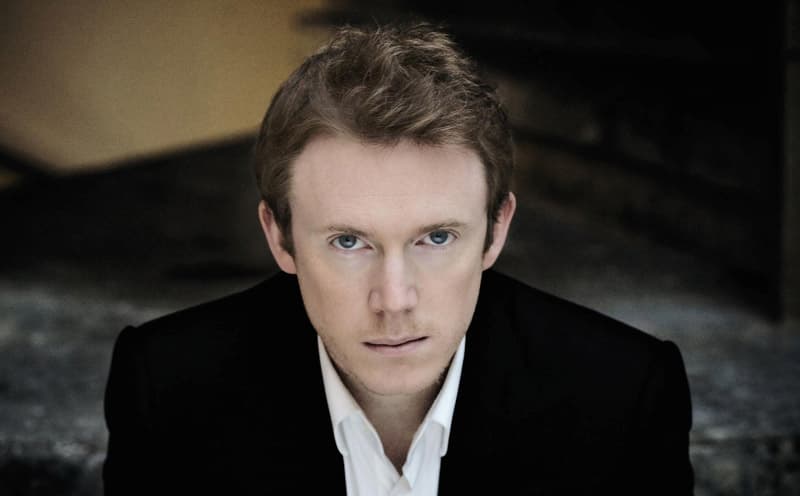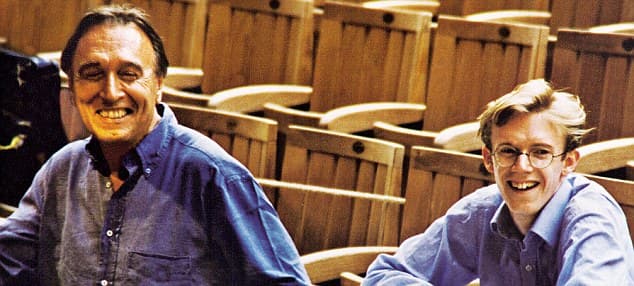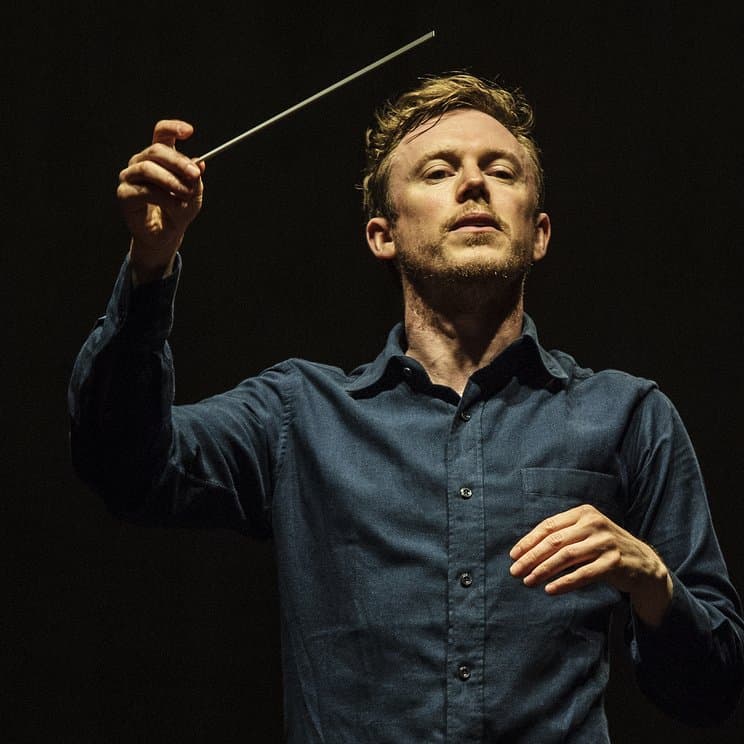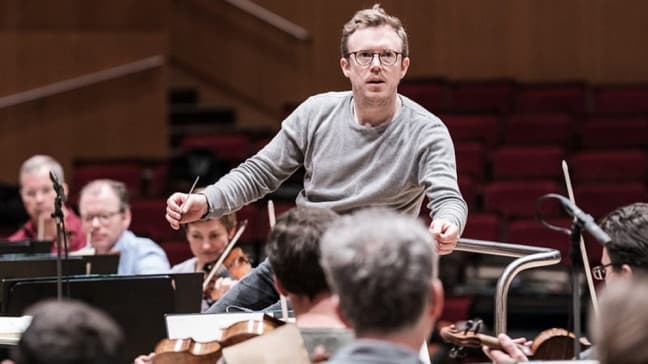Considered Britain’s most gifted and respected export among conductors after Simon Rattle, Daniel Harding’s devotion to music is “matched by his love of football, fast cars, and planes.” His early conducting career was truly remarkable as he was given the chance to conduct the City of Birmingham Symphony Orchestra at age 19. By 21 he had conducted the Berlin Philharmonic, and in the same year, he became the youngest conductor in the history of the Proms.
Daniel Harding Conducts Schumann: Symphony No. 2, Op. 61
Early Years

Daniel Harding
Harding was born in Oxford on 31 August 1975. His father was a metallurgist at the university and his mother an administrator in the engineering department. Amateur music making ran in the family, with an uncle who played in the Hallé Orchestra under Barbirolli, and a maternal grandmother who was friends with Imogen Holst and knew Vaughan Williams.
His aptitude for music manifested itself from an early age and Harding started playing the trumpet from around the age of five. However, he “had to wait until he was eight and got some strong front teeth” before studying the instrument in earnest. However, conducting was already on his mind. As he explained in an interview, “when I was still at Oxford comprehensive school, I asked if I could conduct the wind band, and the school orchestra. Since I was the only one interested, they often let me.”
Jörg Widmann: Antiphon (Swedish Radio Symphony Orchestra; Daniel Harding, cond.)
Chetham’s School of Music

Claudio Abbado and Daniel Harding
Harding played trumpet in a National Youth Orchestra and apparently was told to “just play the very loud bits, and wait.” As he recalled, “I sat there for three hours in the evening just counting the rests. Because I was bored, I used to bring along the score. The least I could do when sitting there was to read it. Then I started to become interested in why the conductor did what he did. I started to understand the job a conductor has and what difference it makes.”
Harding auditioned and was accepted at Chetham’s School of Music, a private co-educational boarding school in Manchester that is home to a high proportion of Britain’s best young musicians. Everybody at that school was there because they had decided that music was going to be a large part of their future. And by the time Harding got to Manchester, he was sure that “I wanted to be a conductor.”
Daniel Harding Conducts Williams’s “Superman March”
Pierrot Lunaire

© William Beaucardet
Harding thoroughly enjoyed the competitive and creative atmosphere at Chetham’s. As he recalled in an interview with Wall Ströberg, “I was surrounded by people who had the same obsession. As fifteen or sixteen year olds, we all had ideas about the world, and we were convinced our way of seeing it was right. This led to a lot of interesting arguments, and I learned so much at that time. It played a big part in cementing my interest in music and conducting.”
As a 17-year-old student at Chetham’s, Harding got a group of musicians together and recorded a performance of Schoenberg’s Pierrot Lunaire. A devilishly complex and highly expressionist work, Harding’s teacher sent a tape to Simon Rattle, who was in charge of the City of Birmingham Symphony Orchestra. Harding explained in an interview in the Guardian, “he could have just ignored it, but he actually listened to the tape and invited me to have a talk with him.”
Gustav Holst: The Planets, “Mars, the Bringer of War” (Bavarian Radio Symphony Orchestra; Daniel Harding, cond.)
Sir Simon Rattle

Daniel Harding
Apparently, Rattle told Harding that he had just performed Pierrot Lunaire with players from the Berlin Philharmonic but that Harding’s performance “was actually more accurate. The trouble is none of you understands anything about music.” That, according to Harding was the beginning of a beautiful friendship that has lasted for 31 years and is still going strong. In the event, Rattle invited Harding to take up the post of assistant conductor at the City of Birmingham Symphony Orchestra.
Concurrently, Harding was still playing in the NYO, even when he really should have been replaced. “But I was working with Simon and conducting, and they knew it was good for me to sit in rehearsals with this wonderful conductor. So they turned a blind eye to the fact that I hadn’t practised the trumpet in four years.” Eighteen months later, Harding conducted the CBSO in a Bartók suite in Birmingham’s Symphony Hall. “And that was the beginning of everything,” Harding explained.
For more of the best in classical music, sign up for our E-Newsletter
